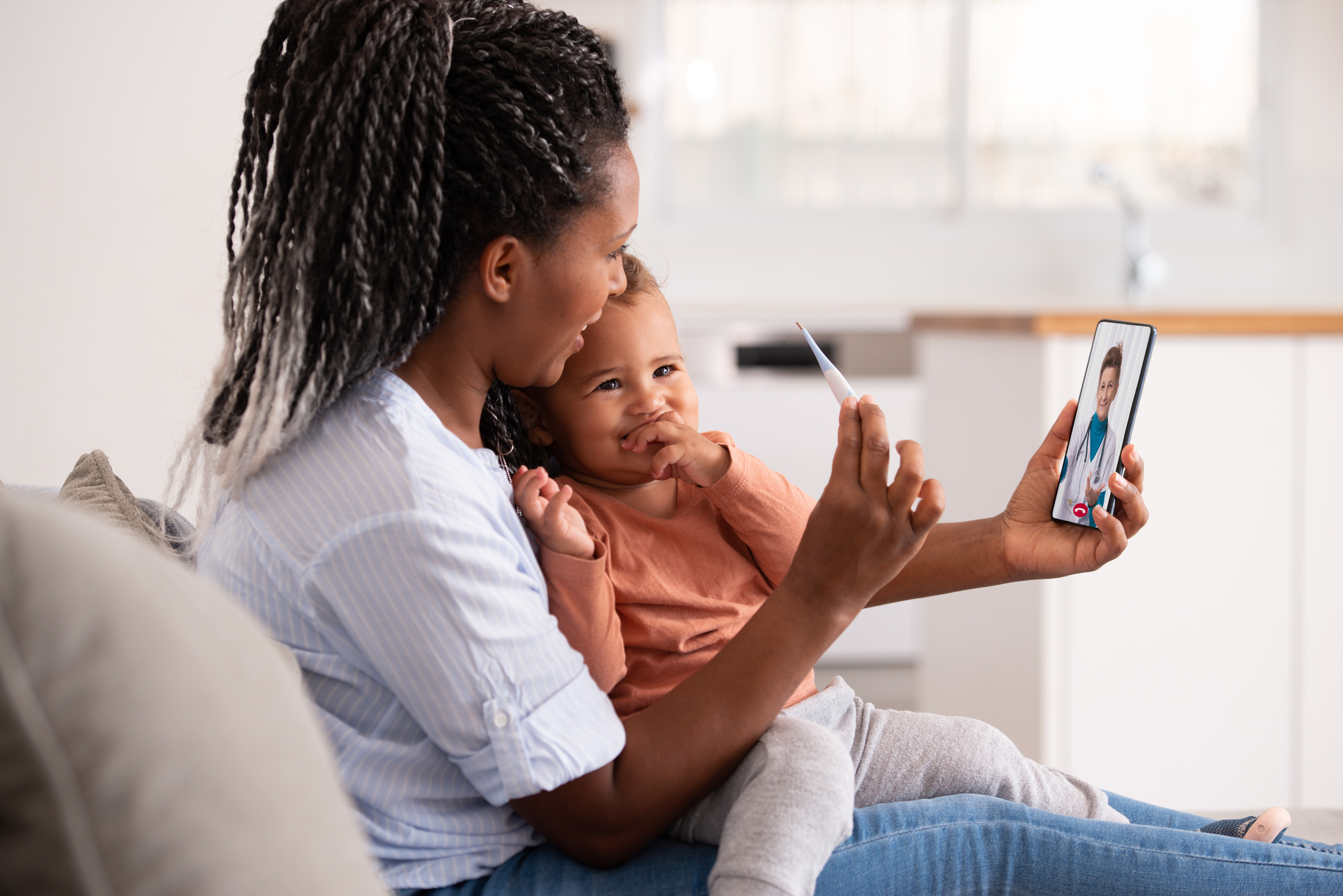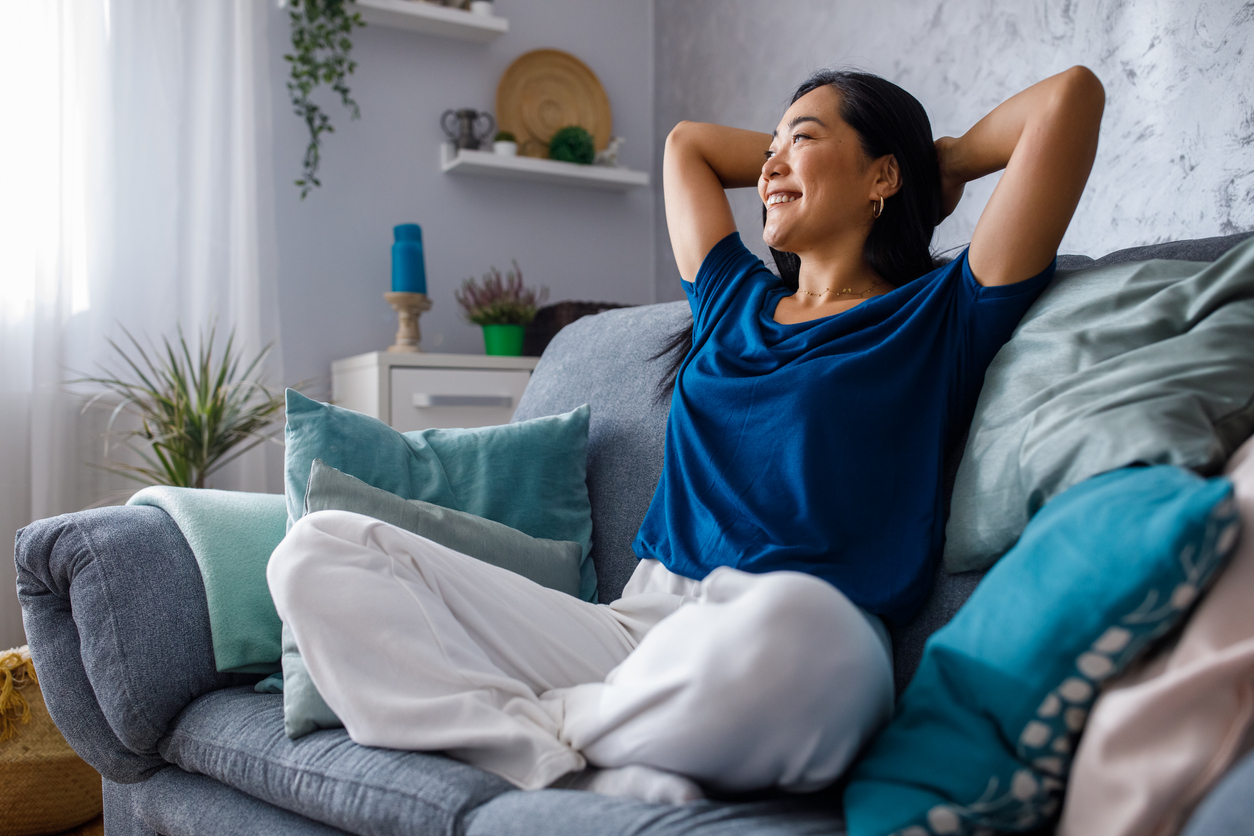Phones aren’t necessarily the first thing that comes to mind when you think of your health. You might spend a lot of time on screens, which can make you sedentary and even depressed. And studies have shown that screen time can interfere with sleep, creativity, and memory.
But your phone can also be a tool for health and wellness. With all the apps available, your phone can be a convenient way to get more information and adjust your lifestyle to be healthier. You can track mood, get exercise regimes, and find easy healthy recipes, right from your device.
Research shows that technology around wellness works — studies have proven that health tracking devices and apps led to healthy changes in behavior.
Wellness apps can teach you to meditate, practice mindfulness, and talk to therapists. Online subscriptions to exercise programs can offer classes you can do right from home.
And of course, there’s telemedicine. With telemedicine, you can talk to a qualified doctor right from your device and get care without the inconvenience of travel. You’ll never have to sit in a waiting room or worry about catching something from the patients around you.
Here are 5 ways your phone can keep you well, including recommended apps to improve your health.
1. Mental Health, Meditation, and Sleep
Phones often get blamed for shortening people’s attention spans, but you can use them to become more mindful, too.
Many apps offer guided meditations, calming background music, and mindfulness courses.
With a meditation app, you can learn to calm your nervous system and tune inward. Plus, many mindfulness apps also have tools for getting better sleep.
Screen time is known to disrupt sleep cycles, but sleep apps can offer advice for slowing down in the evenings and guided meditations to help you drift off peacefully.
While many mindfulness apps require a paid subscription, many others have a free version that still adds a great deal of value to your life.
Best mental health phone apps:
- Insight Timer: guided meditations, calm music, and soundtracks, sleep, yoga, classes
- Headspace: guided meditations, sleep, stress relief, articles on mindfulness
- Sleep Cycle: sleep tracking and alarm clock
- Calm: meditation, sleep, and self-improvement
2. Health and Wellness Tracking
Sometimes, having the right information can be the key to getting healthy.
It can be hard to remember day-to-day information over the long term. But you can use your phone to keep track of physical activity, mood, hormones, period cycles, and more.
With health and wellness tracking apps, you can log how you’re feeling in the moment, then look back after a few weeks or months to notice trends.
You might see that your mood improves on days when you exercise, or that you sleep better on days when you socialize with friends.
Wellness tracking apps make it easy to notice patterns and adjust your behavior accordingly.
Best health tracking apps:
- Daylio: for mood, daily activities
- Flo: for hormone and period tracking, fertility tracking
- Streaks: to-do list, habit tracker
3. Exercise
With exercise apps and subscriptions to online workout programs, you can use your phone to get moving.
There are plenty of exercise apps that offer workouts you can do right from home, from restorative yoga to high-intensity classes. Many you can do with minimal or no equipment.
With an exercise app or subscription, you can save money on a gym membership and time traveling to and from your workout.
Best exercise apps:
- Nike Training Club: for free home workouts of all kinds
- Glo: for yoga, Pilates, and meditation
- Runkeeper: for running, biking, and fitness walking
- AllTrails: for hiking, biking, climbing, and other outdoor recreation
4. Healthy Eating
Eating healthy can be difficult, especially when you’re first getting started. And cooking healthy meals when you’re balancing work, childcare, and all the other things in your life can feel overwhelming.
If you struggle to eat healthily or are trying to lose weight, there are plenty of online resources that can offer extra support.
Healthy eating apps will provide recipes so you’re never wondering what’s for dinner. Some weight loss apps can offer calorie counters to enter what you ate and keep track of your intake throughout the day.
Plus, if you have a food allergy, some apps can even help you figure out what restaurants and dishes will be safe for you to eat.
Best healthy eating apps:
- PlateJoy: for meal planning, shopping lists, and recipes
- MyFitnessPal: for logging food, calorie counting, and nutrition information
- Yummly: for personalized recipes and meal planning
- Spokin: for food allergy information at restaurants
5. Telehealth
During the height of the COVID-19 pandemic, telemedicine was the safest way to talk to a doctor without exposing yourself or others to diseases. Now that people realize how convenient, affordable, and safe it is, telehealth is here to stay.
With a subscription to a telemedicine provider, you can talk to a doctor right from your phone. You can discuss symptoms, get a diagnosis, and even get a prescription at your local pharmacy.
Best telehealth app:
- MDLIVE: myCallADoc is powered by MDLIVE, an app available on iPhones and Androids for 24/7 access to healthcare for you and the whole family.
Keep Yourself Healthy with the Best Telemedicine Service
myCallADoc offers telehealth for you and your entire family for just $28 a month. You can talk to a doctor or pediatrician as often as you need at no additional cost.
There are no co-pays, extra fees, or a cap on visits — and you can use myCallADoc whether or not you have insurance.
myCallADoc doctors can help you with over 50 non-emergency conditions, including allergies, colds and flu, pediatric care, sore throats, and much more.
Join myCallADoc today for an affordable way to care for your health >
This article is not intended as medical advice. Always check with your doctor before embarking on a health and wellness plan.



